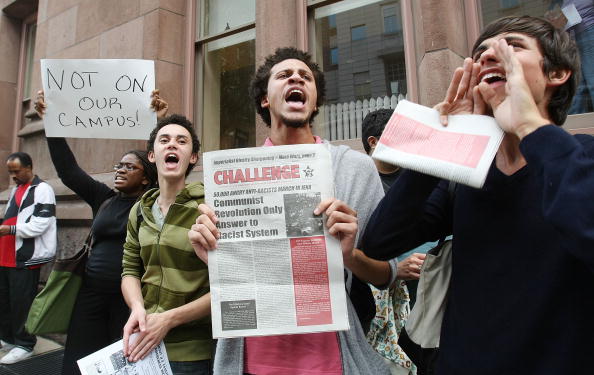Law journals at Columbia University Law School are delaying their masthead decisions in the wake of the Supreme Court's ruling last week outlawing race-based college admissions, a sign that the ban on affirmative action is already having an effect beyond undergraduate programs.
The law school's office of student services, which coordinates applications to all journals including the flagship Columbia Law Review, said Sunday that journal acceptances had been postponed until the school could verify that they comport with the new, race-blind standard articulated in Students for Fair Admissions v. Harvard.
"In light of the Supreme Court decision on Thursday, we are working with university leadership to better understand any implications for the journal ranking process," the office told students in an email. "Because of this, journal acceptances will be delayed until we receive further clarity."
"We have an obligation," the office added, "to … ensure that our decision processes are consistent with the law."
Law journals have long used affirmative action to select student editors as well as articles for publication. The delay suggests that this widespread practice could be on the chopping block as a result of the High Court's sweeping ruling, which experts say has laid the groundwork for invalidating a host of race-based policies across academia and corporate America.
"It's almost impossible to avoid the implication that all recipients of federal funds are now subject to the same rule announced in Students for Fair Admissions," said Dan Morenoff, the executive director of the American Civil Rights Project, which filed an amicus brief in support of the group that sued Harvard. As long as a law review is part of a federally funded university, it faces "the same constraints that the 14th Amendment applies to state entities."
That could spell trouble for Columbia's journals in the event of a legal challenge. Though the Columbia Law Review is technically an independent nonprofit, students apply to it through the university's online portal, and those with questions about the review are referred to the law school's associate director of academic advising, Jordan Carr. Other journals at the law school are published "in partnership" with the university, according to their websites.
Neither Columbia Law School nor the Columbia Law Review responded to requests for comment.
Legal academia is already feeling the heat from the Supreme Court's decision. Within 24 hours of the ruling, the conservative public interest firm America First Legal sent letters to 200 law schools demanding that they scrap racial preferences not just in student admissions but also in faculty hiring and law reviews.
"We will represent victims of these policies and sue any law school that allows these illegal and discriminatory practices to continue," the letters read.
The pause at Columbia indicates that the school's journals have similar programs, as do the demographic data solicited by the Columbia Law Review. Applicants are asked about their race, gender, and sexual orientation, according to segments of application form reviewed by the Washington Free Beacon, and can also submit "other relevant information" about their "personal identity."
Even before the Supreme Court's ruling, law reviews were dealing with legal headaches over their use of racial preferences. In 2018, a Texas-based group sued the Harvard Law Review and the New York University Law Review for allegedly discriminating in the admissions process. While both lawsuits were eventually dismissed—largely on the grounds that the plaintiffs lacked standing—law reviews may struggle to fend off similar complaints going forward, Morenoff said.
The Supreme Court's new standard could pose a particular problem for the Yale Law Journal, which in 2021 released admissions data following accusations of racism from minority students. It turned out the top-ranked law review accepted white and Asian applicants at much lower rates than their black counterparts, numbers that parallel the disparities cited by the Supreme Court in its judgment against Harvard.
"It certainly sounds like the whole set of elite law journals will need to change their MO or face consequences," Morenoff said.
